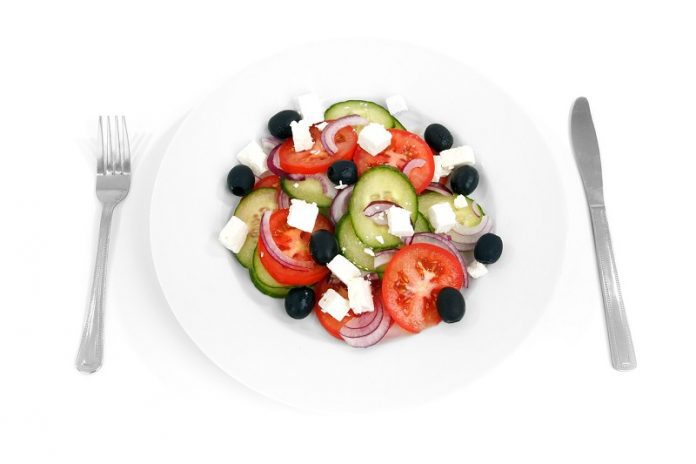
Scientists from Monash University and elsewhere found the Mediterranean diet may boost fertility.
The Mediterranean diet has received much attention as a healthy way to eat, and with good reason.
The Mediterranean diet has been shown to reduce the risk of heart disease, metabolic syndrome, diabetes, certain cancers, depression, and in older adults, a decreased risk of frailty, along with better mental and physical function.
The foundation for this healthy diet includes an abundance of plant foods, including fruits, vegetables, whole grains, nuts, and legumes, which are minimally processed, seasonally fresh, and grown locally.
In the diet, cheese and yogurt are consumed daily in low to moderate amounts. Fish and poultry are consumed in low to moderate amounts a few times a week.
In addition, red meat is consumed infrequently and in small amounts. Wine is consumed in low to moderate amounts, usually with meals.
Infertility is a global health concern affecting 48 million couples and 186 million people worldwide.
Infertility creates a big economic and social burden for couples who wish to conceive and has been linked to unhealthy lifestyle patterns, including poor diet and physical inactivity.
Changing preconception nutrition to better adhere to Food-Based Dietary Guidelines (FBDGs) can be a non-invasive and effective way to improve fertility outcomes.
Several dietary patterns have been linked to fertility outcomes, but the links between diet and infertility remain unclear.
In the current review study, researchers showed that a key mechanism relates to the adverse effects of inflammation on fertility, potentially contributing to irregular menstrual cyclicity, implantation failure, and other negative reproductive results.
Therefore, dietary interventions which reduce inflammation may improve fertility outcomes.
This review found that adherence to anti-inflammatory diets such as the Mediterranean diet (specifically, increased intake of monounsaturated and n-3 polyunsaturated fatty acids, flavonoids, and reduced intake of red and processed meat) can improve fertility, boost reproductive technology (ART) success, and sperm quality in men.
Therefore, the integration of anti-inflammatory diets as low-risk adjunctive fertility treatments may improve fertility and reduce the need for prolonged or intensive medical interventions.
The research was published in Nutrients and conducted by Simon Alesi et al.
If you care about nutrition, please read studies that a low-carb diet could increase overall cancer risk, and vitamin D supplements strongly reduce cancer death.
For more information about nutrition, please see recent studies that olive oil may help you live longer, and vitamin D could help lower the risk of autoimmune diseases.
Copyright © 2022 Scientific Diet. All rights reserved.








